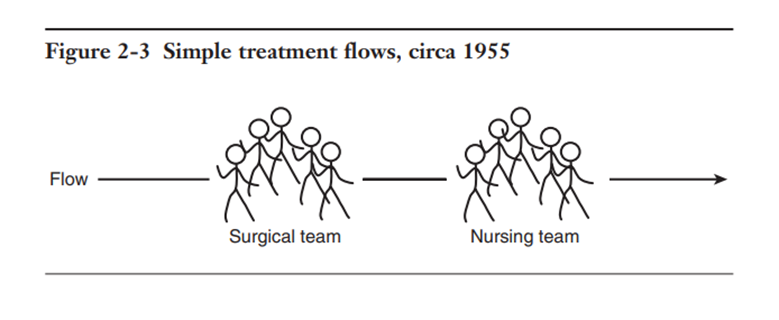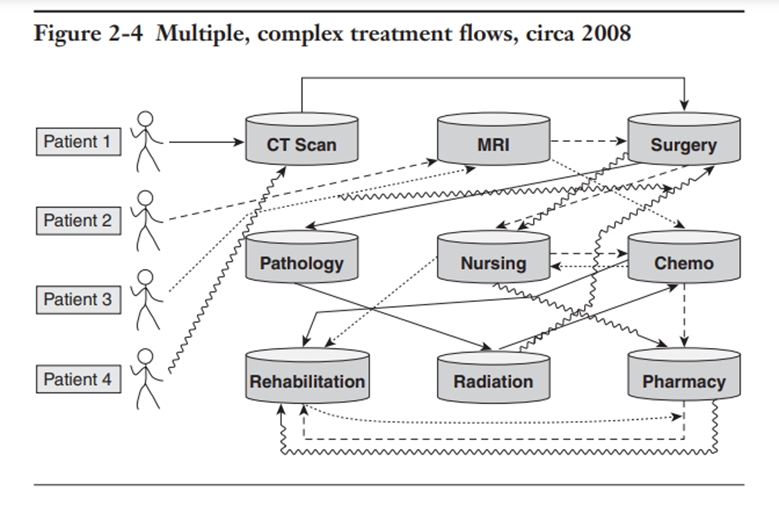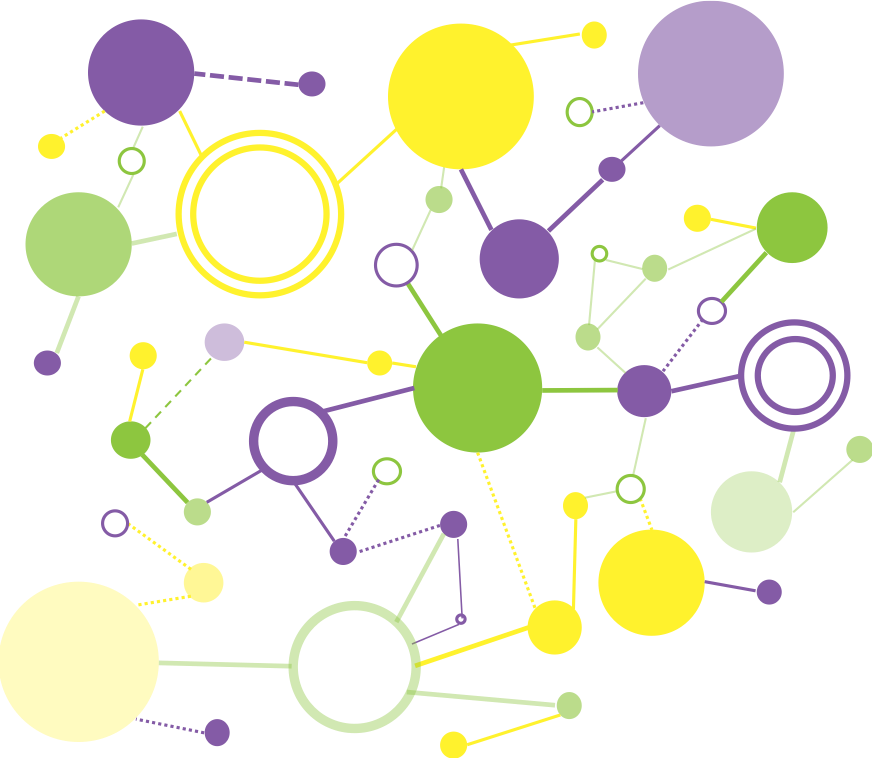Steven J. Spear
September, 2008
Site editor:
Joaquim Cardoso MSc.
Health Transformation — Review
September 19, 2022 (francishealth)
This is a republication of an excerpt of the book “Chasing the Rabbit” — How Market Leaders Outdistance the Competition and How Great Companies Can Catch Up and Win.
When medical science was simpler, coordination was easier.
A small group of people who worked together frequently could establish reliable patterns of behavior, and when those patterns failed, they could resolve the problems informally,.

Today, however, a patient may have several doctors, many nurses, and a dozen or more medications.

A more disciplined, scientific approach to managing such complex work is necessary.
A more disciplined, scientific approach to managing such complex work is necessary.
Why is it not used? Health-care professionals are not trained to do that, as the following example illustrates.
My cardiologist friend, Mark Schmidhofer, was brought up short when his eight-year-old daughter asked, “Daddy, what grade did you go to?”
Including primary and secondary school, premed, medical school, internship, residency, a master’s in physics, and fellowships, he realized that he had gone to 27 grades.
Of course, his daughter, not at all impressed, replied, “Well, I’m starting the third grade today.”
Despite his daughter’s condescension, my friend reflected on what had occurred during those 27 grades.
As he had progressed, his expertise had become deeper in a narrower field, culminating in his cutting-edge knowledge about a particular subspecialty — not cardiology or even angioplasty, but laser angioplasty.
As a master of his subdiscipline, he faced a conundrum.
When he completed his fellowship and joined the ranks of more senior physicians, he was sometimes put in charge of inpatient units, a role in which he was responsible for the care of all the patients.
He realized that, although he was tremendously competent at contributing the portion of the work in which he had specialized, patient care depended on the myriad contributions of people on the other side of one boundary or another: …
… those in disciplines such as pulmonology, endocrinology, surgery, and psychiatry; those in professions such as nursing and pharmacy; and those in his own profession but at other levels, such as residents and medical students.
When he objected to his colleagues that he had deep knowledge within his discipline’s silo, the vertical element of his role, but far less expertise in creating systems of care from the disparate disciplines and managing them, he was assured: “Don’t worry. You’ll figure it out like the rest of us did.”
When he objected to his colleagues that he had deep knowledge within his discipline’s silo, the vertical element of his role, …
but far less expertise in creating systems of care from the disparate disciplines and managing them, …
… he was assured: “Don’t worry. You’ll figure it out like the rest of us did.”

What is the message? (by the site editor)
Hospitals try to coordinate the work of thousands of people to save thousands of lives from a nearly infinite variety of medical conditions.
Complex systems management, a discipline that has been applied to several industries, has had very little application to healthcare so far.
Therefore, healthcare workers are not trained on complex systems management, in the opposition to a highly functionally training.










